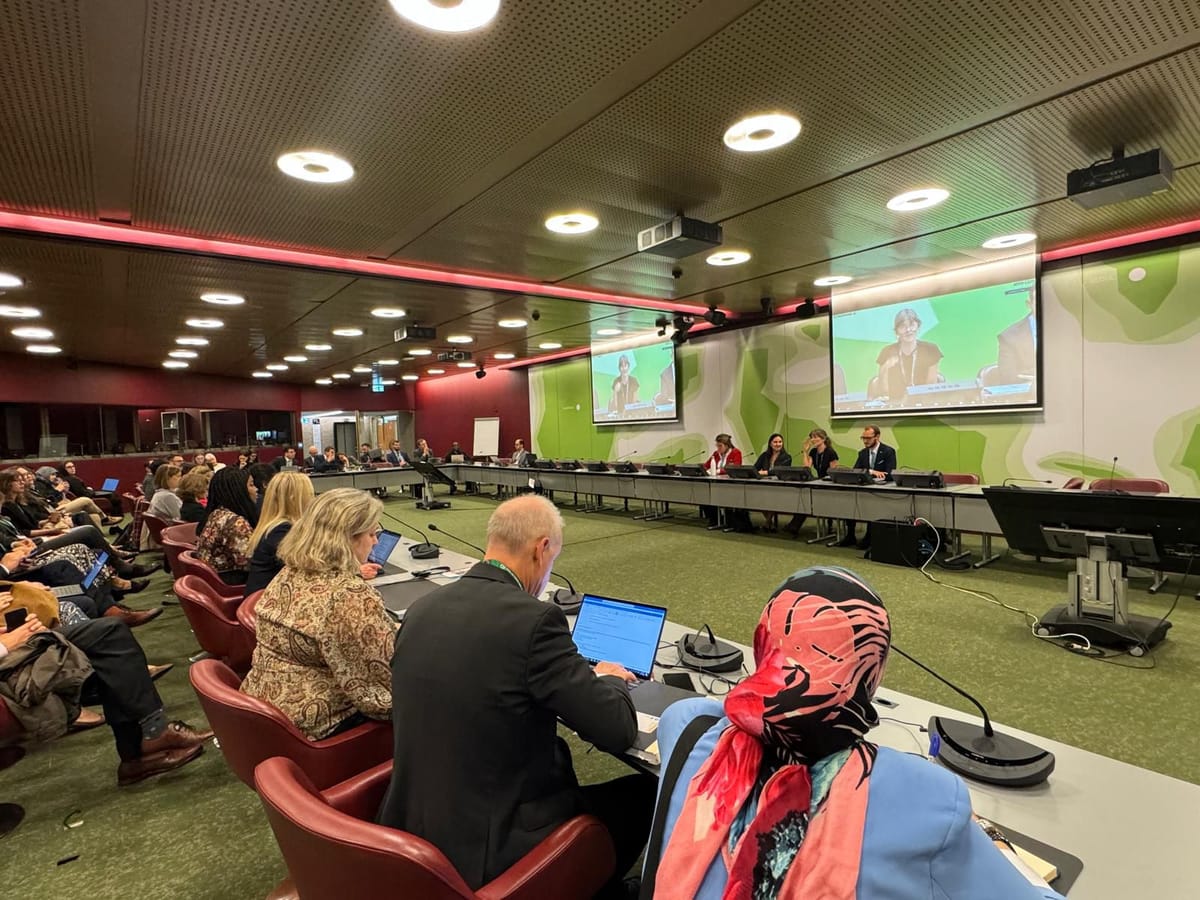World Summit on the Information Society

There was a flurry of activity this week in Geneva with the annual WSIS Forum of the ITU officially kicking off the WSIS+20 review with a high level event, with the fourth annual AI Summit for Good tacked on, too. Two working meetings were also hosted for members of the IGF Multistakeholder Advisory Group and the Freedom Online Coalition.
Below the jump I talk a bit more my panel on human rights and standards, but you can also cut to the chase and watch it here: https://www.itu.int/net4/wsis/forum/2024/Agenda/RPWeb/172
The multistakeholder session with the Global Network Initiative is online, too: https://www.itu.int/net4/wsis/forum/2024/Agenda/RPWeb/307
Was this email forwarded to you? Subscribe!
What happened on the internet this week
- I spoke with Anne Roth from Netzpolitik about using open standards development to mitigate the harms of unwanted location trackers: https://netzpolitik.org/2024/interview-on-location-trackers-google-and-apple-are-hoping-to-avoid-being-banned/
- The EU has put forward a totally unsatisfactory "compromise" proposal on how it might require services to break their own end-to-end encrypted systems. The Global Encryption Coalition is calling for signatories who oppose it: https://www.globalencryption.org/2024/05/joint-statement-on-the-dangers-of-the-may-2024-council-of-the-eu-compromise-proposal-on-eu-csam/
- Canada, too, has a harmful policy proposal on encryption. Ron Deibert and Kate Robertson from Citizen Lab published an excellent opinion piece: https://www.theglobeandmail.com/opinion/article-ottawa-wants-the-power-to-create-secret-backdoors-in-our-networks-to/?
- ICYMI Eric Rescorla writes about the state of play in designing post-quantum TLS: https://educatedguesswork.org/posts/pq-rollout
- The ACM conference on AI– FAccT (Fairness, Accountability, and Transparency)– will be held next month. Its executive committee put out a statement on "AI Warfare" within the context of the Gaza genocide reading, "The deeply morally troubling use of AI in this conflict presents a critical moment for our community to recognize our own responsibility as scientists and scholars in preserving human life." While now withdrawn due to its objectionable use of the passive voice, you can read it here: https://facctconference.org/withdrawn-warfare
- Data & Society have published a paper that gives straight forward and clear AI policy recommendations to mitigate sociotechnical harms. "Do not deploy" is a very welcome and central approach: https://datasociety.net/library/a-sociotechnical-approach-to-ai-policy/
- Civic space is closing in the US, online and offline. Turns out the TikTok ban would be a pretty major loss for activists and social movements https://www.aljazeera.com/economy/2024/5/30/us-activists-worry-about-losing-major-asset-tiktok-as-potential-ban-looms
Our WSIS+20 HLE Panel Highlights Human Rights and Internet Standards (my blog last week @CDT)
On May 27th, government officials and representatives of the private sector, academia and civil society from around the world will gather in preparation for marking the two decades since the first World Summit on the Information Society. The WSIS brought stakeholders together to envision a future in which digital technologies are available to all, regardless of country or background, and it kicked off a series of convenings that have since worked to align the internet’s continuing evolution with the UN’s Sustainable Development Goals and basic principles of human rights.
As part of CDT’s support for human rights in internet standards and emerging technology, our organization will co-host a panel at the event with the ITU, the U.S. government, the Dutch government and ARTICLE 19. As CDT’s Chief Technology Officer, I’ll join the panel as part of our ongoing work connecting human rights and internet standards, an effort that dates back to the turn of the millennium. We look forward to highlighting how privacy, accessibility and freedom of expression are vital for democratic and equitable digital governance.
Internet standards underlie digital networks as we know them today, allowing machines and their users to communicate regardless of where they’re based or which operating systems they employ. In just one sign of the rising prominence of the panel’s topic, the UN Office of the High Commissioner on Human Rights recently recognized the importance of creating internet standards that support free expression and universal access in resolution A/HRC/53/42.
The ITU, the United Nations specialized agency for digital technology, has overseen the WSIS process from its origin. CDT is proud to join with the ITU to highlight the ways human rights considerations are infiltrating the arcane space of internet standards, to the potential benefit of us all. As a next step, some States have suggested creating a new ITU process to identify how its technical standards can better consider human rights.
I’m looking forward to addressing the UN in the WSIS+20 panel, which comes at a critical time for human rights in technical standards for an institution like the ITU. While I expect some push back from some States on incorporating human rights considerations into internet standards, this is an important moment for those of us who have been building this field of engagement. We need to build broad support among stakeholders now, so that we’re prepared to take on the criticisms of the process that are certain to come. The future of human rights on the internet may depend on it.
The newsletter is inching closer and closer to 1000 subscribers– Please forward and share!

Comments ()